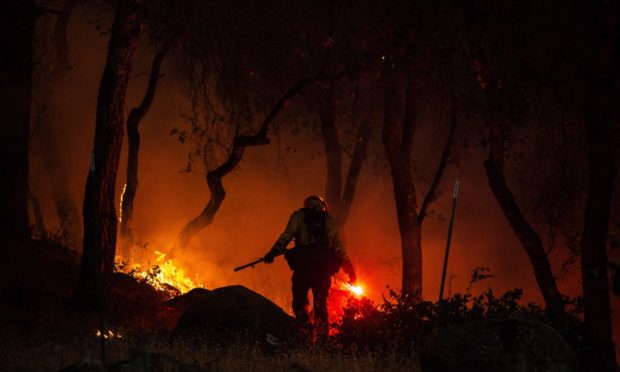Looking back over the year with all its distractions, it’s easy to forget the damage which has been done to our environment. Bush fires in Australia are nothing new, but the ferocity and length of time those fires burned was unprecedented.
More than 3,000 people lost their properties and more than 42 million acres were razed, including unique ecosystems and rainforests. Many animal species were driven to extinction. World scientists claimed this was a taste of future climate change devastation.
Similarly, wildfires raging across the US west coast took more than 30 lives and thousands of homes were destroyed. Many people were reported missing. Lives and livelihoods ruined in a flash. And all President Trump could say was: “It will start getting cooler. Just you watch.” Fortunately, the new President Biden is looking to re-join the Paris Climate Change Agreement.
Scientists have produced undisputable evidence that our earth is getting warmer. Much of it through our burning of fossil fuels and the build-up of greenhouse gases. The polar ice caps, as they melt, are raising sea levels, and as the oceans warm up many marine creatures are unable to survive this change
Even in Scotland, although temperatures this winter dropped to -12C, little snowfall was recorded. As we think back to the 1970s, snowfall in the north-east used to last for weeks. Now it barely lasts for a single day.
During the first national lockdown, the sky was bluer, the grass greener and the air less polluted. This was the result of fewer cars and heavy goods vehicles on our roads.
Though there is much talk by government of a move to electric vehicles, they would have to reduce their cost price by at least 25% to make this affordable to the public, unless of course we return to the 1940s and 50s when only wealthy people could afford to buy a car.
However, there is a big issue to be faced in the use of child labour in the Congo area to mine the cobalt needed to make those batteries for electric cars. There is also a secondary issue of planning, where we have built large out-of-town industrial estates which house supermarkets etc, all requiring cars to reach them. This would require a huge rethink.
I recall when Aberdeen City Council took its first delivery of electric vehicles in the late 1990s. I had to drive one along the Beach Boulevard for the benefit of the media, hotly pursued by the council photographer, Norman Adams, who required a photograph of the event.
The vehicles were nippy little vans but were limited to only 70 miles range before requiring to be recharged. I was struck by its silence. No thrum of an engine. I barely knew it was started!
That was my second encounter with an electric vehicle, my first being at the age of 13, in the 1960s, when I helped my uncle John to deliver milk for Kenarty’s dairies. My uncle was most insistent that my shoes be polished to a shine before leaving bottles of milk at his customers’ houses.
Originally, he had delivered milk by driving a horse and cart. But modern technology, such as it was then, presented him with an unwelcome change, to an electric milk float vehicle.
It was about 6ft long and powered by two batteries which ran the full length of the vehicle. They had to be charged overnight.
Top speed was 15 miles an hour but nearly 20 going downhill. It had no doors so it wasn’t much fun when it was blowing a gale or raining. Also it couldn’t move slowly up the streets like the horse did on command. How we have progressed since then.
I admire the views and the passion with which Greta Thunberg speaks. She has a great grasp of the climate change issues. It’s remarkable in one so young. The difficulty she faces is the difference between massive changes required in our way of life, which many will see as a threat, and the practical delivery of those changes.
Government machinery is slow to move and is usually about 10 years behind the public. Nonetheless her persistence and enthusiasm will pay off as she carries the global warming message, backed up by scientific research.
It was Greta’s crusade which coined the phrase “when leaders act like children, and children act like leaders, it’s time for a change”.
I wish her well.
Len Ironside is a former champion wrestler who served as an Aberdeen councillor for 35 years, four of them as council leader
